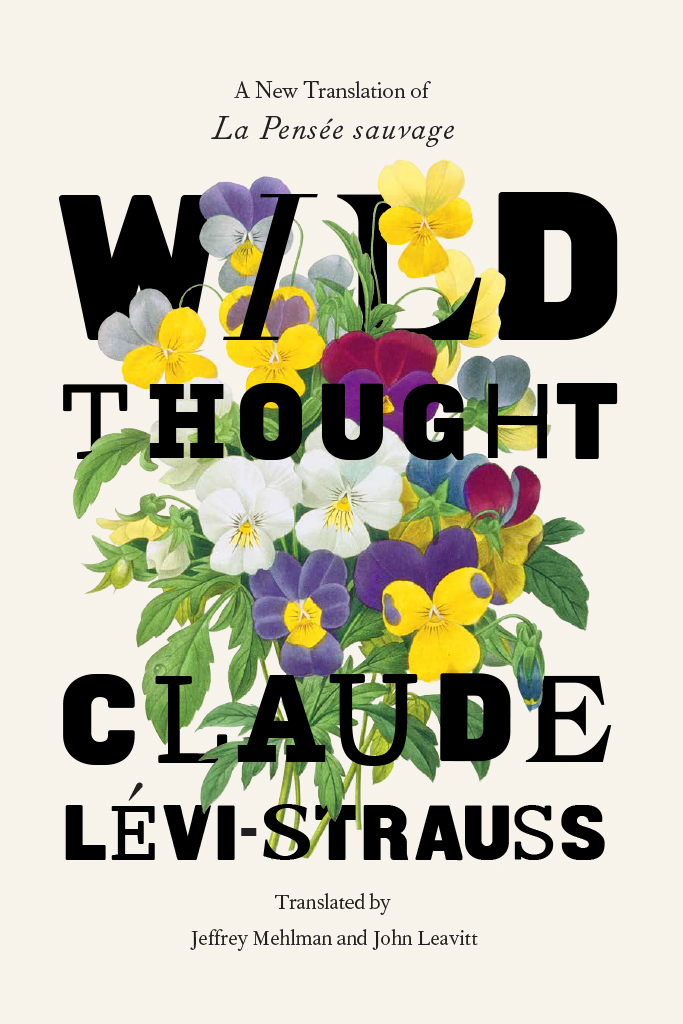
WILD THOUGHT
WILD THOUGHT
A New Translation of La Pense sauvage
CLAUDE LVI-STRAUSS
Translated by Jeffrey Mehlman and John Leavitt
With annotations by John Leavitt
THE UNIVERSITY OF CHICAGO PRESS
Chicago and London
The University of Chicago Press, Chicago 60637
The University of Chicago Press, Ltd., London
2021 by The University of Chicago
All rights reserved. No part of this book may be used or reproduced in any manner whatsoever without written permission, except in the case of brief quotations in critical articles and reviews. For more information, contact the University of Chicago Press, 1427 E. 60th St., Chicago, IL 60637.
Published 2021
Printed in the United States of America
30 29 28 27 26 25 24 23 22 21 1 2 3 4 5
ISBN-13: 978-0-226-20801-5 (cloth)
ISBN-13: 978-0-226-41308-2 (paper)
ISBN-13: 978-0-226-41311-2 (e-book)
DOI: https://doi.org/10.7208/chicago/9780226413112.001.0001
Originally published in French as La Pense sauvage Librairie Plon, 1962. This translation is based on the Pliade edition of Claude Lvi-Strausss works edited by Vincent Debaene, Frdric Keck, Marie Mauz, and Martin Ruef Gallimard, 2008.
Published with the generous assistance of the France Chicago Centers Collge de France Program.
Frontispiece: The wild pansy (Viola tricolor). Plate from P.-J. Redout, Choix des plus belles fleurs (Paris, 1827).
Library of Congress Cataloging-in-Publication Data
Names: Lvi-Strauss, Claude, author. | Mehlman, Jeffrey, translator. | Leavitt, John Harold, 1952 translator, writer of supplementary textual content.
Title: Wild thought : a new translation of La pense sauvage / Claude Lvi-Strauss ; translated by Jeffrey Mehlman and John Leavitt ; with annotations by John Leavitt.
Other titles: Pense sauvage. English
Description: Chicago ; London : The University of Chicago Press, 2021. | Includes bibliographical references and index.
Identifiers: LCCN 2020027878 | ISBN 9780226208015 (cloth) | ISBN 9780226413082 (paperback) | ISBN 9780226413112 (ebook)
Subjects: LCSH: Ethnopsychology. | Folk classification. | Cognition.
Classification: LCC GN451 .L3813 2021 | DDC 155.8/2dc23
LC record available at https://lccn.loc.gov/2020027878
 This paper meets the requirements of ANSI/NISO Z39.48-1992 (Permanence of Paper).
This paper meets the requirements of ANSI/NISO Z39.48-1992 (Permanence of Paper).
In memory of Maurice Merleau-Ponty
... and there is pansies, thats for thoughts
SHAKESPEARE, Hamlet, Act 4, Scene 5
Il ny a rien au monde que les Sauvages, les paysans et les gens de province pour tudier fond leurs affaires dans tous les sens; aussi, quand ils arrivent de la Pense au Fait, trouvez-vous les choses compltes.
There is nothing in the world like Savages, peasants, and provincials for studying out their affairs to the bottom and in all their bearings; thus, when they move from the Thought to the Deed, you find things complete.
BALZAC, Le Cabinet des antiques, 1836
CONTENTS
by John Leavitt
John Leavitt
TWO BOOKS IN ONE YEAR
In 1962, the anthropologist Claude Lvi-Strauss published two books, both growing out of his lectures at the Collge de France in 196061. The first to appear, laid out in the first six lectures, was Le Totmisme aujourdhui, literally Totemism Today, the forty-second volume in the Mythes et religions series published by the Presses Universitaires de France. It was a small bookit had to be, since the series was made up of introductory volumes with strict limits as to length. It had been requested by the series editor, Georges Dumzil, as a companion to such texts as Jean-Pierre Vernants Origines de la pense grecque, Jean Bottros La Religion babylonienne, or Dumzils own Les Dieux des Indo-Europens, as well as volumes on the major contemporary world religions.
Le Totmisme aujourdhui, which appeared in March, makes a compelling case that what earlier generations of anthropologists and historians of religion had labeled totemismthat is, the identification of human groups with natural beings, especially animalsand had often treated as a stage in the development of human religions and social organization was an illusion created by selecting certain forms from what was in fact a pan-human tendency to classify the differences that characterize one domain in terms of those that appear clearly in another. This is not a kind of primitive identification with animals; it is, rather, an expression of the way the human mind logically works, in this case classifying human groups by means of clear distinctions found in nonhuman realms.
Totemism, the lining-up of social categories in terms of natural categories, did not reveal a primitive inability to distinguish, for instance, people from animals; on the contrary, it showed that people all over the world were perfectly capable of using human intellectual powers to delineate and organize their lived worlds, social and natural.
The book is clear and didactic. In 1963 there appeared an English translation (entitled Totemism) by the British anthropologist Rodney Needham, a translation that has generally been accepted as an excellent rendition of the original.
The story is not nearly so straightforward with the second book of 1962, La Pense sauvage. In the last five of his Collge de France lectures, Lvi-Strauss had opened up much wider philosophical and ethnological problems than could be encompassed in the book as he and Dumzil had imagined it. Through an intense correspondence, it was decided that Le Totmisme aujourdhui would be primarily historical and comparative, with a clear enunciation of Lvi-Strausss own position. This would fit into the 130-odd pages to which the volumes in the series were restricted. Lvi-Strauss would then be free to develop the wider implications of his critique for human thinking and classification systems in a longer workinitially called Beyond Totemismwhich is what became La Pense sauvage, published in May 1962 by his usual publisher, Plon, which had already brought out his autobiographical essay Tristes Tropiques and his pathbreaking collection Anthropologie structurale. (Readers may find it useful to refer to the summary of the years lectures in Claude Lvi-Strauss, Anthropology and Myth: Lectures, 19511982, translated by Roy Willis [Oxford: Blackwell, 1987], 2536.)
While Le Totmisme aujourdhui was read and appreciated by both scholars and students, it was La Pense sauvage that had a real impact on French, and soon on international, intellectual life. A book that ranges over philosophies, historical periods, and human societies, directly engaging the major philosophical options of its time and place, it challenged the prevailing existentialisms and individualisms and all notions of a general superiority of modern Western cultures over others. All human beings, throughout the world and through history, are intellectual creatures, it argues, naturally given to classifying and organizing the data to which they have access. The specificity of modern scientific thought is to deal directly with abstractions, while mythic thought, thinking in the wild (sauvage), manipulates abstractions through arrangements and rearrangements of perceptible qualities, a play of emblems. But both use the same kinds of processes, and in fact
Next page
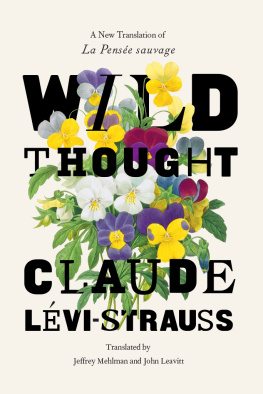
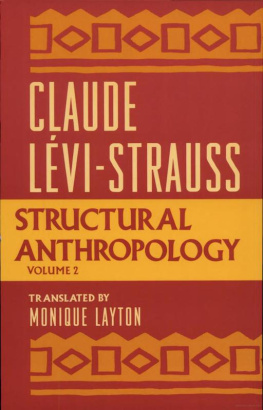


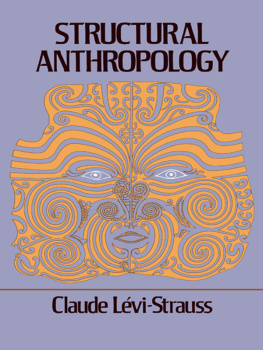
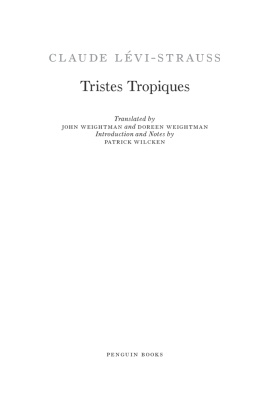

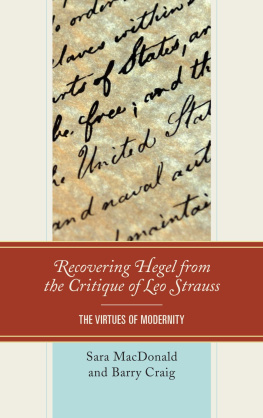
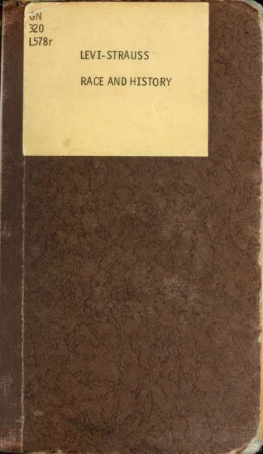
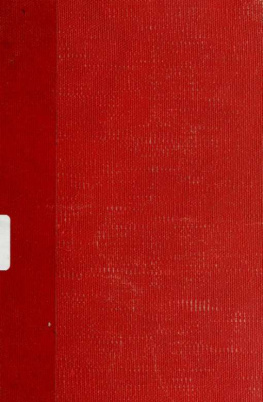

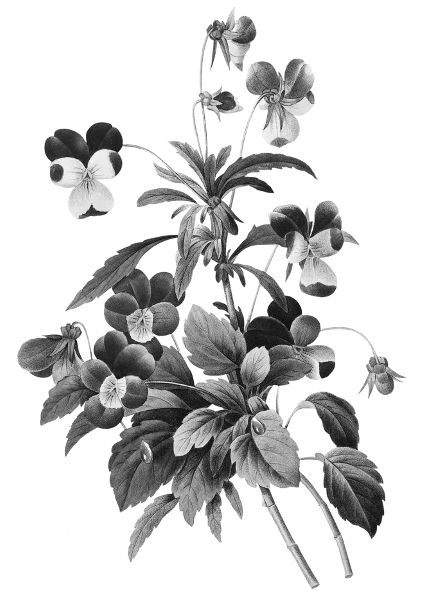
 This paper meets the requirements of ANSI/NISO Z39.48-1992 (Permanence of Paper).
This paper meets the requirements of ANSI/NISO Z39.48-1992 (Permanence of Paper).